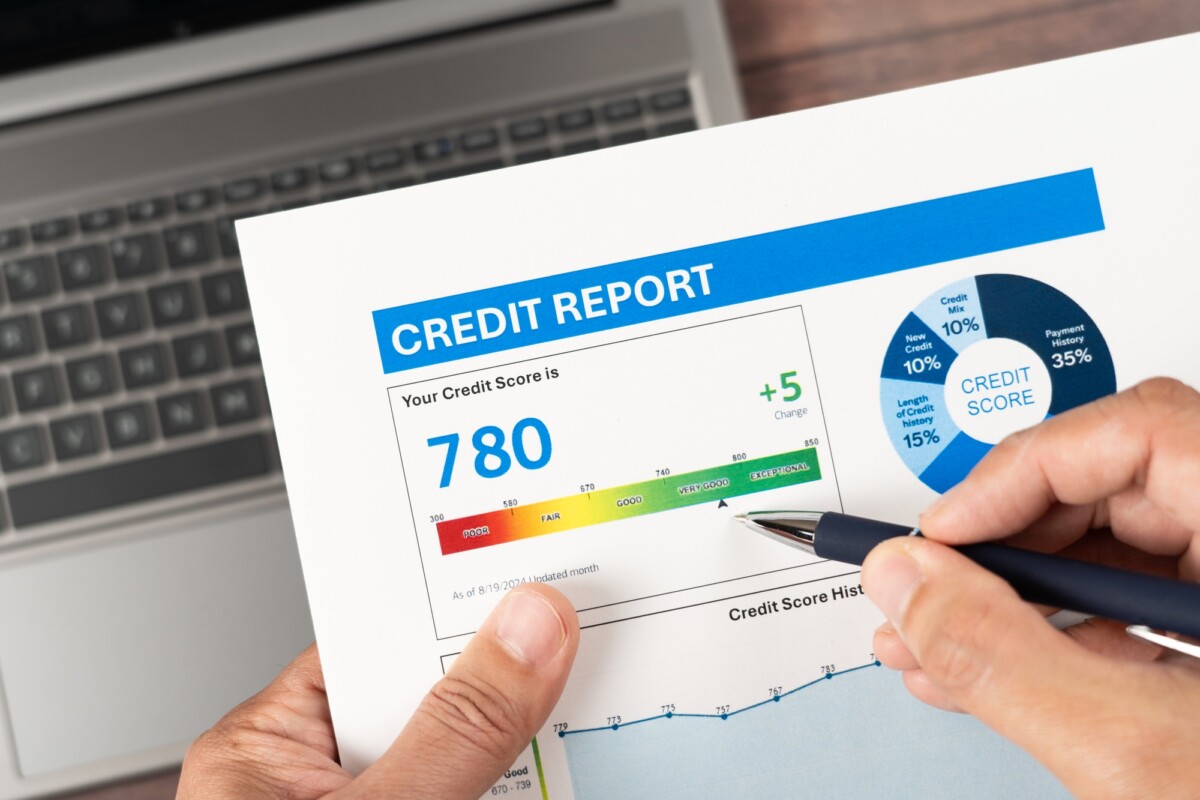
Understanding your credit score for student loan is crucial, as it can significantly impact your borrowing options. While federal student loans often don’t require a credit check, private lenders typically do. A higher credit score can lead to better interest rates and terms, making it essential to know where you stand before applying.
The Role of Credit Scores in Student Loans
- Federal Student Loans: Generally, these loans do not require a credit score, making them accessible to most students.
- Private Student Loans: These loans often require a good credit score, typically above 650, to qualify for favorable terms.
- Loan Forgiveness Programs: Understanding the potential for 10000 loan forgiveness can also influence your decision, especially if you plan to work in public service or education.
Advantages of Federal Student Loans
- No Credit Check: This makes them available to students without established credit histories.
- Flexible Repayment Options: Federal loans offer various repayment plans, including income-driven options.
- Loan Forgiveness Opportunities: Programs can help reduce your debt significantly, making federal loans a safer choice for many students.
Unlock your potential with online degrees—Learn more!
What is Considered a Good Credit Score for Student Loans?
Understanding what credit score you need for a student loan is crucial for securing the funding you need for your education. While many federal student loans do not require a credit check, private lenders often do. A good credit score can significantly impact your loan terms and interest rates, making it essential to know where you stand.
Generally, a credit score of 670 or higher is considered good for student loans. This score can help you qualify for better interest rates and loan terms. If you’re aiming for a $10,000 loan forgiveness program, having a strong credit score can also enhance your eligibility for certain repayment plans.
Advantages of Federal Student Loans
- No credit check required: Most federal loans do not consider your credit score, making them accessible to many students.
- Flexible repayment options: Federal loans offer various repayment plans, including income-driven repayment.
- Loan forgiveness programs: Programs like Public Service Loan Forgiveness can provide significant financial relief.
Understanding these factors can help you make informed decisions about financing your education.
Read Also: How Can You Access Free Home Schooling Programs Online?
How Your Credit Score Affects Student Loan Interest Rates
Understanding the credit score you need for a student loan is crucial for securing favorable terms. Lenders often use your credit score to determine your eligibility and interest rates. A higher score can lead to lower rates, which can save you money over the life of your loan.
The Role of Credit Scores
Your credit score for student loans typically ranges from 300 to 850. Most lenders prefer scores above 650. If your score is lower, you might face higher interest rates or even loan denial.
Advantages of Federal Student Loans
Federal student loans usually don’t require a credit check, making them accessible for many students. They also offer benefits like income-driven repayment plans and potential $10,000 loan forgiveness under certain conditions, which can ease your financial burden. In summary, maintaining a good credit score is essential for obtaining student loans with favorable terms. By understanding how your credit score impacts interest rates, you can make informed decisions about financing your education.
Can You Get a Student Loan with Bad Credit?
Understanding the credit score needed for a student loan is crucial, especially for those with less-than-perfect credit. A good credit score can open doors to better loan terms and lower interest rates. However, many students wonder, “Can you get a student loan with bad credit?” The answer is yes, but it comes with some caveats.
While private lenders often require a decent credit score for student loans, federal student loans have more lenient requirements. Here are some key points to consider:
- Federal Student Loans: These loans typically do not require a credit check, making them accessible to most students, regardless of their credit score.
- Private Student Loans: These usually require a credit score for student loan approval. If your score is low, you might need a co-signer to secure better terms.
- Loan Forgiveness Options: Programs like the $10,000 loan forgiveness can help alleviate some financial burdens, especially for those struggling with repayment.
In summary, while a bad credit score can complicate your loan options, federal student loans offer a viable path for many students. Understanding the advantages of federal student loans can help you make informed decisions about financing your education.
The Role of Co-Signers in Student Loans and Credit Scores
Understanding the credit score needed for a student loan is crucial for prospective borrowers. A good credit score can significantly influence your loan options, interest rates, and overall borrowing experience. However, many students may not have an established credit history, making it essential to explore alternatives like co-signers.
Co-signers can play a pivotal role in securing a student loan, especially for those with limited credit history. Here’s how they help:
- Improved Approval Chances: A co-signer with a strong credit score can enhance your chances of loan approval.
- Lower Interest Rates: With a co-signer, lenders may offer better interest rates, making your loan more affordable.
- Access to Federal Benefits: Co-signing can also open doors to federal student loans, which often come with advantages like potential 10000 loan forgiveness programs.
Having a co-signer not only boosts your credit score for student loan applications but also provides a safety net as you navigate your educational journey. It’s a win-win situation for both parties involved! In summary, while your credit score is important for student loans, a co-signer can significantly enhance your borrowing potential. They can help you secure better terms and access federal student loans, which often come with unique benefits. So, consider reaching out to a trusted family member or friend who can support you in this financial endeavor.
Tips to Improve Your Credit Score Before Applying for a Student Loan
Understanding the credit score needed for a student loan is crucial for prospective borrowers. A good credit score can significantly impact your loan options, interest rates, and overall borrowing experience. While federal student loans often do not require a credit check, private lenders typically do, making your credit score a vital factor in the approval process.
Check Your Credit Report
Regularly review your credit report for errors. Disputing inaccuracies can help boost your credit score for student loan applications.
Pay Your Bills on Time
Timely payments on existing debts, such as credit cards or utilities, can positively influence your credit score. Consistency is key to demonstrating reliability to lenders.
Reduce Your Debt-to-Income Ratio
Aim to lower your overall debt. A lower debt-to-income ratio can improve your creditworthiness, making you a more attractive candidate for loans, including the advantages of federal student loans.
Exploring Federal vs. Private Student Loans: Credit Score Requirements
Understanding the credit score needed for a student loan is crucial for prospective borrowers. Your credit score can significantly influence your loan options, affecting interest rates and eligibility. Whether you’re considering federal or private student loans, knowing the requirements can help you make informed decisions about financing your education.
Federal Student Loans
Federal student loans typically do not require a credit score for eligibility. This is one of the advantages of federal student loans, as they are accessible to most students regardless of their credit history. Additionally, federal loans offer benefits like income-driven repayment plans and potential $10,000 loan forgiveness under certain conditions.
Private Student Loans
In contrast, private lenders often require a good credit score for student loans. Generally, a score of 650 or higher is recommended. If your score is lower, consider applying with a creditworthy co-signer to improve your chances of approval and secure better rates.
Unlock your potential with online degrees—Learn more!
How to Check Your Credit Score for Free Before Applying
Understanding what credit score you need for a student loan is crucial for your financial future. A good credit score can open doors to better loan terms, while a poor score might limit your options. Knowing your score before applying can help you strategize effectively, especially if you’re considering federal loans, which often come with advantages like potential loan forgiveness programs.
Utilize Free Online Services
Many websites offer free credit score checks. Services like Credit Karma or AnnualCreditReport.com allow you to view your score without any cost. This is a great first step to assess your eligibility for a student loan.
Understand Your Score’s Impact
A higher credit score can lead to lower interest rates on loans. For instance, if you qualify for a federal student loan, you might benefit from programs like the $10,000 loan forgiveness, which can significantly ease your financial burden. Knowing your score helps you make informed decisions about your borrowing options.
Read Also: Who Qualifies for the $10,000 Student Loan Forgiveness?
Common Myths About Credit Scores and Student Loans Debunked
Understanding the credit score needed for a student loan is crucial for prospective borrowers. Many students believe that a high credit score is mandatory, but this isn’t always the case. In fact, federal student loans often do not require a credit check, making them accessible to a wider range of applicants.
Myth 1: You Need a Perfect Credit Score
Many assume that only those with excellent credit can secure a student loan. However, federal student loans, which offer advantages like 10000 loan forgiveness, are available regardless of your credit score. This makes them an attractive option for students.
Myth 2: Private Loans Are Always Better
While private loans may offer higher amounts, they often come with stricter credit requirements. Federal student loans provide benefits such as lower interest rates and flexible repayment options, making them a safer choice for many students.
Myth 3: Credit Scores Are the Only Factor
Your credit score for a student loan is just one piece of the puzzle. Lenders also consider income, employment history, and debt-to-income ratio, especially for private loans. Understanding these factors can help you navigate the borrowing process more effectively.
How CollegeDegree.School Can Help You Navigate Student Loan Options
Understanding the credit score needed for a student loan is crucial for aspiring students. A good credit score can open doors to better loan options and lower interest rates. However, many federal student loans do not require a credit check, making them accessible to a wider range of students.
Understanding Credit Scores
Your credit score for student loan eligibility typically ranges from 580 to 700 for private loans. A higher score can lead to more favorable terms. If you’re considering federal loans, remember that they often come with advantages, such as flexible repayment plans and potential for 10000 loan forgiveness after qualifying payments.
Advantages of Federal Student Loans
- No Credit Check: Most federal loans don’t require a credit score check.
- Income-Driven Repayment Plans: Tailored to your financial situation.
- Loan Forgiveness Options: Programs like Public Service Loan Forgiveness can lead to significant savings.
Navigating these options can be overwhelming, but CollegeDegree.School is here to guide you through the process, ensuring you make informed decisions about your student loans.
Unlock your potential with online degrees—Learn more!
FAQs
What credit score is needed to get a student loan?
- Federal student loans do not require a credit check, but private lenders usually look for a credit score of at least 650-700 for approval.
Do student loans affect my credit score?
- Yes, student loans impact your credit score. Making on-time payments can improve your score, while missed payments can lower it.
Can I get a student loan with bad credit?
- Yes, you can get federal student loans without a credit check. For private loans, a co-signer with good credit can help you qualify.
How does refinancing a student loan affect my credit score?
- Refinancing may cause a small, temporary dip due to a hard credit inquiry, but consistent on-time payments can help improve your score over time.
Does applying for multiple student loans hurt my credit score?
- Multiple hard credit inquiries in a short period can lower your score slightly, but many lenders allow prequalification with a soft credit check, which doesn’t affect your score.





